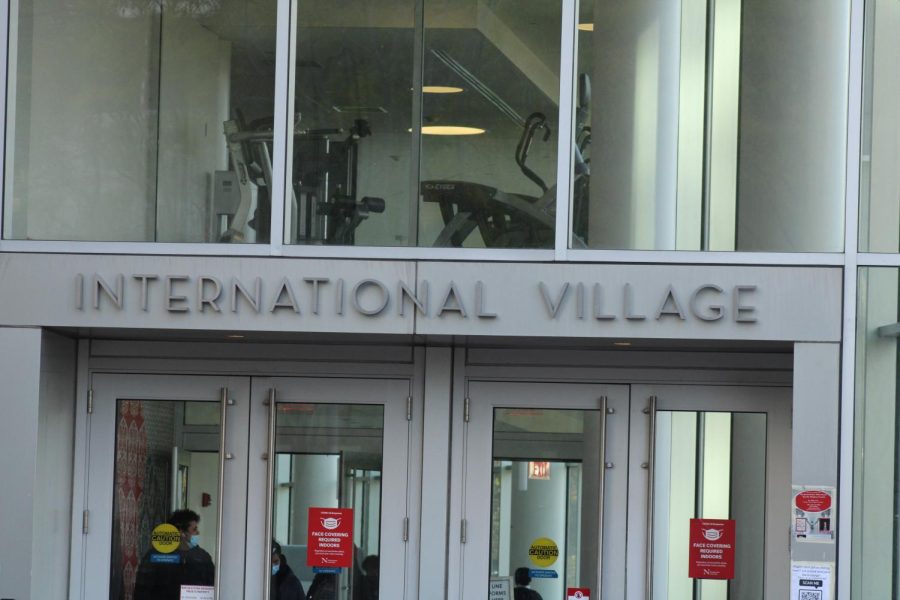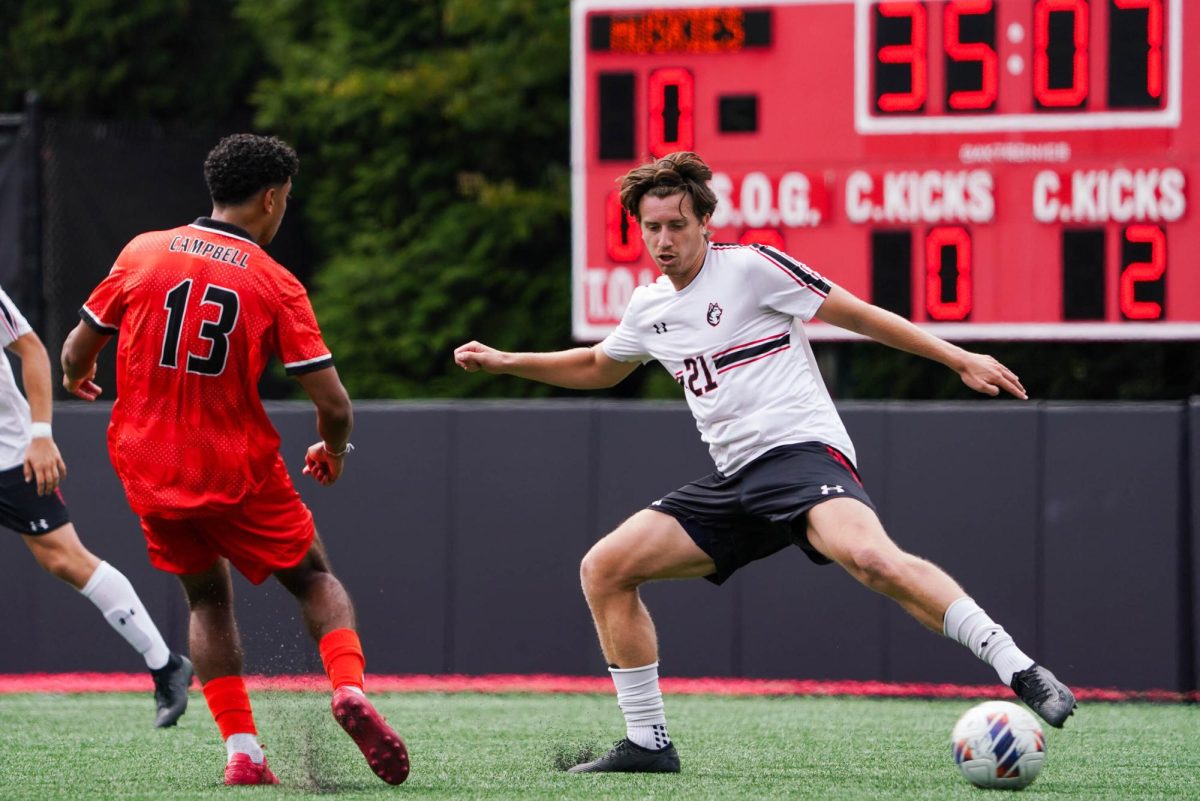NU to add beds to East Village, International Village to address overcrowding concerns
The proposal looks to increase the number of beds in East Village from 723 to approximately 930, and the number of beds in International Village from 1,200 to approximately 1,900.
November 4, 2021
In a new proposal to address the growing student population, next fall Northeastern University will look to convert student bed spaces in the International Village and East Village residence halls from single occupancy rooms into double occupancy rooms and double occupancy rooms into triple occupancy rooms.
The Northeastern Department of Campus Planning and Real Estate, or NUCPR, submitted its Institutional Master Plan, or IMP, to city developers Oct. 4, detailing amendments to its plan from 2013. This amendment included the addition of approximately 900 beds in East Village and International Village, increasing the number of beds in East Village from 723 to approximately 930, and the number of beds in International Village from 1,200 to approximately 1,900.
After the IMP was posted on Reddit, many students raised concerns about how this change would be implemented and how it would impact students currently living in those buildings.
The average double in East Village is 90-95 square feet per person, and the average single in International Village is 130-150 square feet per person. The proposed changes would shrink the size of rooms to only about 60-70 square feet per person, which is less than half the size of the average parking spot in the United States.
In an email to students and parents Nov. 4, Senior Vice Chancellor for Student Affairs Madeleine Estabrook wrote that the amendment is being proposed to address the increased need for student housing, as Northeastern received 75,000 applications for this year’s entering class.
“We are continuously reimagining our campus environment to create the best experience for our students,” she wrote. “This includes optimizing the use of residence hall rooms that allow for a greater capacity than they currently hold.”
The IMP came as a shock to many, including those students who work closely with the administration. Northeastern’s Student Government Association, or SGA, has engaged with the university over issues such as student housing, but first heard about the proposal through a Reddit post.
Vice President of Student Services Sebastian Chávez acknowledged that he understands NUCPR must account for stakeholders other than students in their plans but wished his voice was heard as a student leader before the committee submitted its proposal to the Boston Planning and Development Agency, or BPDA.
“We can’t work on what we’re passionate about if we don’t have an open line of communication with administrators,” the third-year industrial engineering and political science double major said. “Students need to have a foot in the door for these kinds of things earlier. We’re a major stakeholder. We’re the ones impacted by these changes.”
Second-year political science and economics major Harrison Voigt echoed these thoughts. Voigt is an SGA senator for the Student Services committee and has been working with NUCPR on other initiatives for almost six months now, including addressing other recent proposed developments such as mixed-use housing development planning to be put near Ruggles station.
“I saw this, and I was immediately quite concerned, just as somebody who knows a lot about how these programs work,” he said. “The IMP amendment was submitted on Oct. 4 and its comment period ends on Nov. 4. Usually what that means is after that time period ends, the BPDA goes into review and rules on it.”
Estabrook said no new beds will be added until the Fall 2022 semester.
Chávez and Voigt sought to answer initial questions in a student town hall Oct. 29. The meeting consisted of mostly first-year students concerned about the amendment and how it will impact those living in International Village and East Village this year. Students across the university have started initiatives to push back against the changes, including starting petitions expressing their disagreement with the proposal.
First-year international affairs major Daniel Pasciuto attended the meeting with SGA to voice his concerns not only for himself, but also to understand how the proposed changes would impact students who require accommodations through the Disability Resource Center, or DRC.
“Primarily, I’m concerned because I’ve had a lot of dealings with housing through the DRC and getting accommodations, and I know how frustrating that is for those who need it,” he said. “Generally I’m concerned about the precedent it sets because they [are telling] us that ‘we’re just going to reduce your standard of living and you can’t do anything about it.’”
The meeting also brought up questions on how the proposed amendment would impact resident assistant rooms and how the university would address increased strains on dining and ResMail, among other issues.
Estabrook reassured students and parents in her email that the university will continue to prioritize safety in the execution of this plan.
“Safety continues to be our number one priority,” she said. “All safety and sanitation codes are being followed with the utmost strictness. Every floor of a building has a maximum number of occupants that can be safely evacuated (called an ‘Egress Limit’). In both International and East Village, the new total number of beds we’re proposing is less than this limit by at least half, and by much more in most cases.”
SGA plans to continue meeting with NUCPR to discuss the proposed amendment. They want to get students involved in this conversation by instituting a Development Advisory Board, which would act as a direct liaison between students and the NUCPR. While Voigt and other members of SGA will be working on solutions with the university to address this issue, he believes there isn’t one easy way to fix the problem.
“It’s hard for us to form housing policy as students, and we should not be expected to,” he said. “This will continue to be an issue because [the university] over-enrolled the freshman class, there’s a surplus of students and they have not built on-campus housing to accommodate those students. Unfortunately, this is not a problem that can be solved quickly.”
Voigt and Chávez encourage students to submit a comment to the BPDA with any concerns they have about the amendment. The comment period on the proposal ends today, Nov. 4, before the BPDA votes. SGA said the BPDA will most likely not have time to address this proposal at their November meeting, so it will most likely be addressed at their Dec. 16 meeting.







